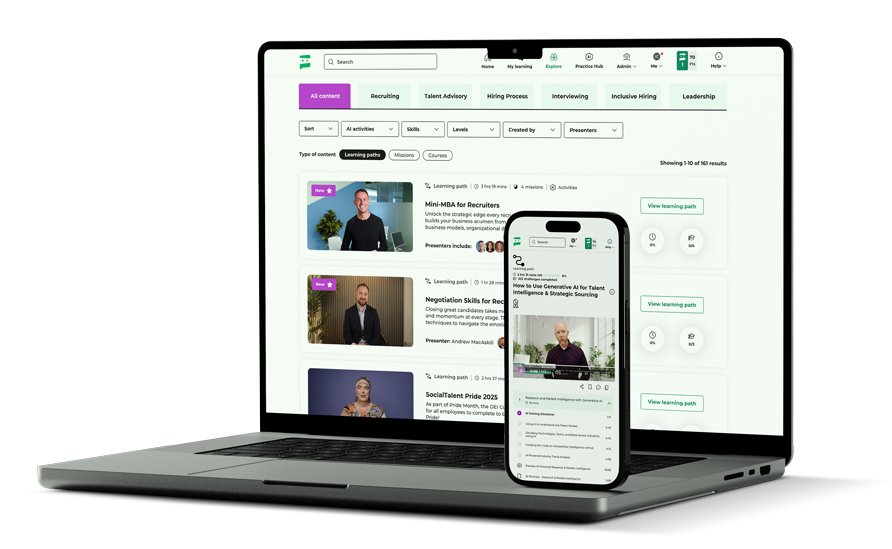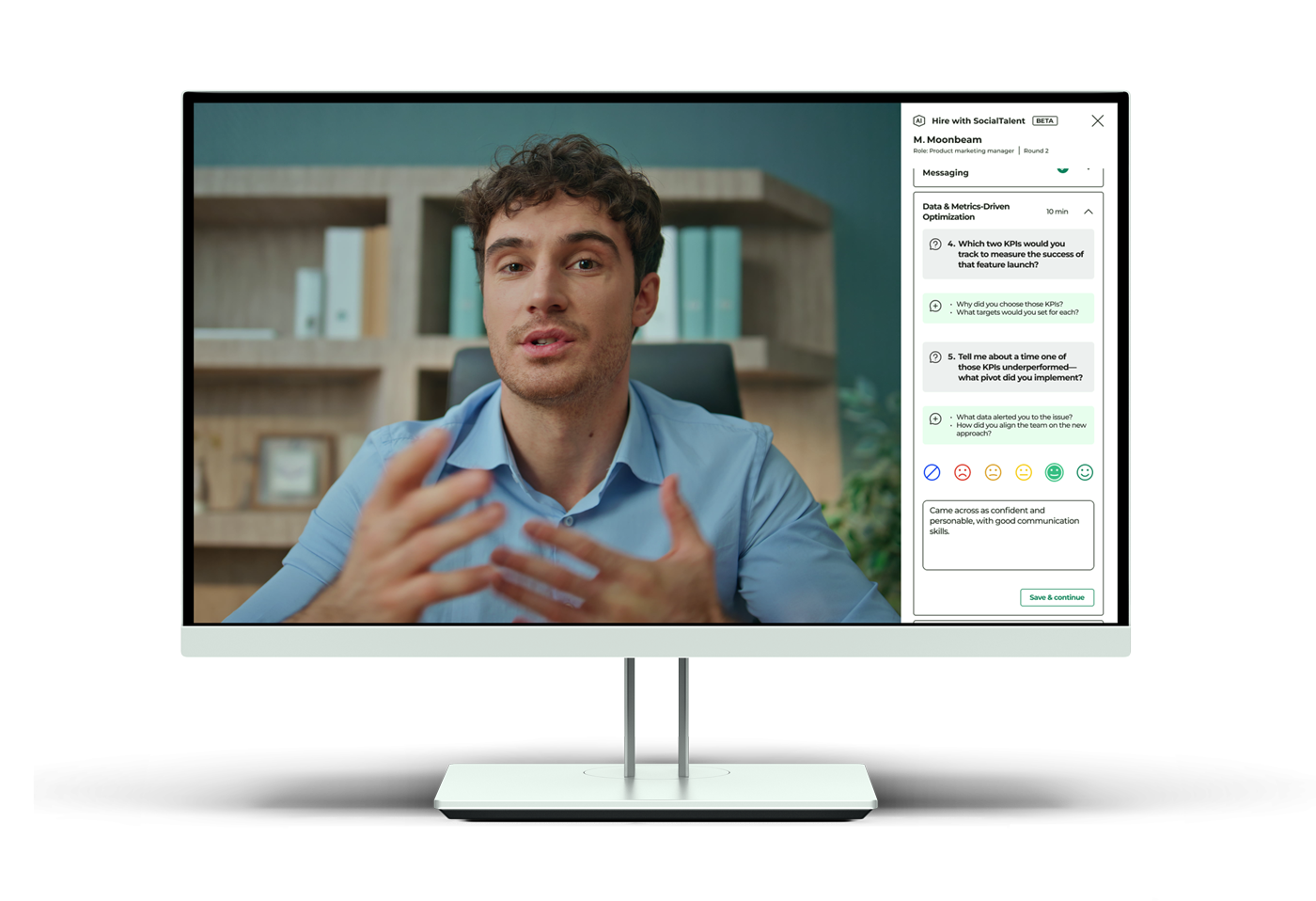
By Johnny Campbell
Staying updated on the latest workforce trends is crucial for TA leaders and HR professionals. This week, we delve into three significant developments shaping the talent landscape and get SocialTalent’s CEO, Johnny Campbell’s first-hand takes on these pieces.
- EBN: Trump’s tariffs are fueling hiring hesitation, prompting firms to seek niche talent while candidates grow wary of making moves.
- BBC: The UK is ending overseas care worker recruitment, risking a staffing crisis in a sector already struggling to attract domestic talent.
- Slate: AI-powered interviews are frustrating candidates with impersonal, glitchy experiences—raising questions about the human cost of automation.
Join us as we explore these pivotal insights and their implications for the future of work.
1. How Trump’s Tariffs Are Affecting Recruiting And Retention
Source: EBN
Trump’s new tariffs are fueling economic uncertainty, reshaping how companies recruit and retain talent. While industries like tech and real estate remain mostly unaffected, others are slowing hiring, fearing recession. Candidates are cautious about switching jobs, and companies are prioritizing niche experience—like navigating supply chains impacted by tariffs. Executive recruiter Emily Levine advises flexibility, including temporary hires, to manage risk. But she warns that hesitation can erode candidate confidence and stall growth in otherwise thriving sectors.
Johnny Campbell’s take on this:
“Yup, we’re seeing this everywhere! Recession fears abound which means hiring slows down and investments in new tech or paused. With one exception; many companies are using this as their opportunity to bring AI in to reduce their hiring costs. We’re in for a bump year folks!“
2. Care Worker Recruitment From Abroad To End
Source: BBC
The UK government will end overseas recruitment of care workers, Home Secretary Yvette Cooper announced, as part of a broader immigration crackdown targeting lower-skilled roles. Firms must now hire British workers or extend existing visas. The move aims to cut net migration by 50,000, amid rising public concern and political pressure. Critics warn the care sector lacks a sufficient domestic workforce, risking deeper staffing crises without better pay and clearer career paths for UK care workers.
Johnny Campbell’s take on this:
“Anti immigration sentiment is spreading and this time it’s the UK’s turn. Interestingly, it seems that net immigration rose dramatically post Brexit, despite promises to the contrary! I suspect that this will not work. Recruiting healthcare workers from within the UK has always proven difficulty; the supply of willing and motivated workers just isn’t there. You also don’t want an unemployed person who hates working in healthcare being forced to take the job and then end up caring for you when you’re sick!“
3. Worst Interview Ever
Source: Slate
Job seekers are increasingly facing A.I.-powered interviews—often impersonal, glitchy, and deeply frustrating. Candidates like Tyler Jensen and Kendiana Colin describe surreal encounters with bots offering canned praise or breaking down mid-question. Companies use tools like Apriora to cheaply screen thousands, but applicants feel dehumanized, misled, and overlooked. Critics argue A.I. strips away authentic interaction and fails to capture traits like personality or cultural fit, leaving applicants—and sometimes recruiters—disillusioned by the rise of robotic hiring practices.
Johnny Campbell’s take on this:
“Going back to article 1 above, companies are adopting AI interviewing at a quickening pace, particularly for hourly or early in career roles. I would personally hate it but I suspect all of us will soften over time and the tech will get better. For now, most employers do think the pros outweigh the cons but what does that say about their approach to talent? I would definitely make sure every recruiter has gone through a robo-screen and approved it before implementing such technology in your organization!“




